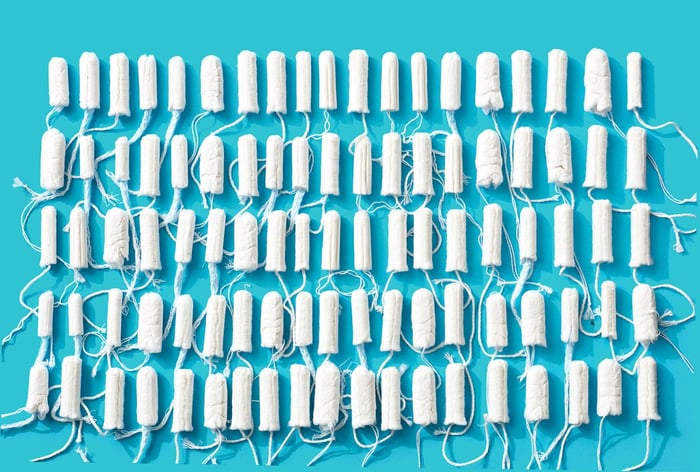Recent study finds lead and arsenic in tampons
I, like most of the world right now, am alarmed (although unfortunately, not that surprised) to find out about the study that uncovered toxic metals in 14 popular tampon brands, including lead and arsenic. If you haven’t heard about this, you can read more about the study from the University of California Berkeley here.
What did the study uncover?
- "Measurable concentrations' of metals were found in every tampon tested (organic, name-brand and store-brand);
- the tampons were sold in the United States and Europe;
- the metals found were: Arsenic, Barium, Calcium, Cadmium, Cobalt, Chromium, Copper, Iron, Manganese, Mercury, Nickel, Lead, Selenium, Strontium, Vanadium and Zinc;
- lead was found in every tampon tested - the paper notes that there is no 'safe' exposure level to lead;
- arsenic, a known carcinogen, was found in some (including the organic ones) but not all of the tampons tested; and
- lead levels were higher in non-organic tampons and arsenic levels were higher in organic tampons
How did metals end up in tampons?
There are a few ways that these metals could have ended up in tampons.
Firstly, the environment they grow in - there are metals in the soil that cotton grows in and these can be naturally absorbed as part of the growing process.
Secondly, metals like zinc may have been added to the tampons for odor control or as an antimicrobial agent. Other metals may have been added to add pigment or for whitening.
Are tampons safe? Putting it in perspective.
The research does not conclude that tampons are not safe. A press release notes that 'it’s unclear if the metals detected by this study are contributing to any negative health effects".
It’s important to remember that we are exposed to low levels of these metals in our daily lives and that there has been no study which links these metals in tampons to contributing to negative health effects.
The main flag this study raises for me is the failure of these companies to be transparent about what is going into their products. Metals like zinc might have been added added as an antimicrobial agent - and that is not necessarily a bad thing - but if it was intentionally added, zinc should have been listed by the manufacturer as an ingredient or additive.
There was also nothing in the study and there has been no research done yet to know how much (if any) of these metals will be absorbed into your body - that is still work that needs to be done.
Should you be concerned if you are a tampon user?
Our mission at nixit has always been one of transparency - to give you the information that you need to make an informed choice for your body. As noted above, the levels found in these tampons were very low, and we are exposed to these metals in our daily lives. I am sure your question now is - will the metals found to be present in tampons be absorbed by my body or end up affecting my health negatively?
We do not yet know the consequences, if any, of these metals being present in tampons. However, if you are a tampon user and this study concerns you, you can:
- do deeper research on the tampon brands to find manufacturers that do test their products and post the results of those tests;
- switch to fragrance free tampons, or buy tampons without polyester, polypropylene, polyethylene or other plastic materials;
- switch to a menstrual cup or menstrual disc which is made of 100% medical grade silicone; or
- switch to other sustainable options like period underwear.
Menstrual cups as an alternative
What I can tell you is that the nixit menstrual disc (and other menstrual cups that have been through the appropriate regulatory processes) are made from body-safe, medical grade silicone. Not only are reusable discs better for the planet, they’re better for your health.
There’s never been a better time to switch to a safer period product. One that collects your flow rather than absorbs, so that you don’t reabsorb from it. (Side note: we think this might be why many of our customers report shorter periods!)
If you are interested in the nixit menstrual disc, you can feel secure knowing that our disc is made from 100% BPA-free medical grade silicone, and is one of the few on the market that is authorized for sale by Health Canada.
If you have any questions, my team and I are here to help.





